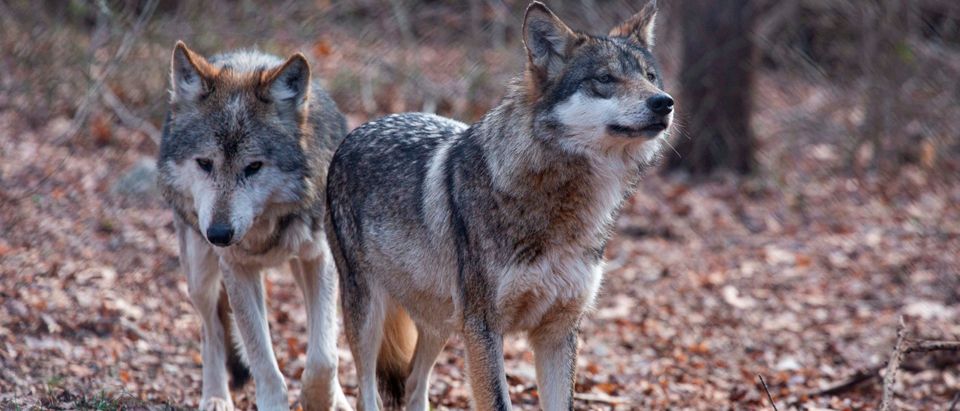A coyote hybrid species in Texas could be used to revive red wolves, which became extinct in the wild in 1980.
The canids can be found on Galveston Island in Texas and appear similar to the extinct red wolf, according to a study published Monday by The New York Times.
The canids on Galveston Island are not conventional coyotes — at least, not entirely. They carry a ghostly genetic legacy: DNA from red wolves, which were declared extinct in the wild in 1980. https://t.co/A8LLb41kzX
— The New York Times (@nytimes) January 3, 2022
Ron Wooten is a local resident who became interested in the coyote-like canids on the island after his dog was killed by them, the outlet reported.
“They just didn’t look right,” Wooten said, The New York Times reported. “I thought at first that they must have bred with Marmaduke or something because they had super-long legs, super-long noses.”
When Wooten found two of the dead canids, he collected small patches of skin from the animals and stored the samples in his freezer, according to the outlet. He then reached out to scientists to help possibly prove the canids on the island are part red wolf.
When a scientist finally tested the patches of skin, they turned out to contain 30% of the genetic material of red wolves, The New York Times reported. (RELATED: Ancient DNA Found In 1600-Year-Old Mummified Sheep)
“They harbor ancestral genetic variation, this ghost variation, which we thought was extinct from the landscape,” Dr. Bridgett vonHoldt said, reported the NYT. “So there’s a sense of reviving what we thought was gone.”
The discovery of the hybrid red wolf species on Galveston Island could help to revive the red wolf population for the future, according to The New York Times.
“[H]ere we have these hybrids that are now potentially going to be the lifeline for the highly endangered red wolves,” Dr. Kristin Brzeski said about the hybrid species, the outlet reported.
Wooten would eventually like to open an educational center for the canids, reported The New York Times.
“The possibilities of what these animals hold down here is pretty valuable,” Wooten said, reported the outlet. “And that’s the reason I pursued it, I think. I think God was thumping me on the head and saying, ‘Hey, I got animals here. Take care of ’em.'”
“TPWD is aware of the research into the coyotes on Galveston Island and is continuing to follow it with interest,” the Texas Parks and Wildlife Department told the Daily Caller in a statement.
“It has long been known that red wolves historically interbred with coyotes in Texas, but the amount of residual red wolf genetics in the Galveston coyote population was surprising to many biologists. TPWD and local partners are continuing to monitor these developments and potential implications of this research,” the department went on to say.


